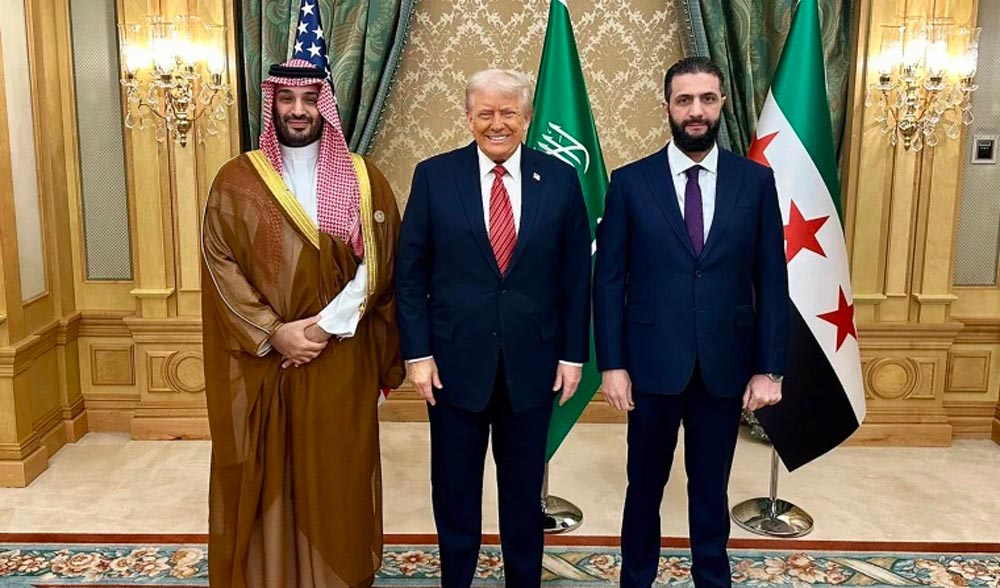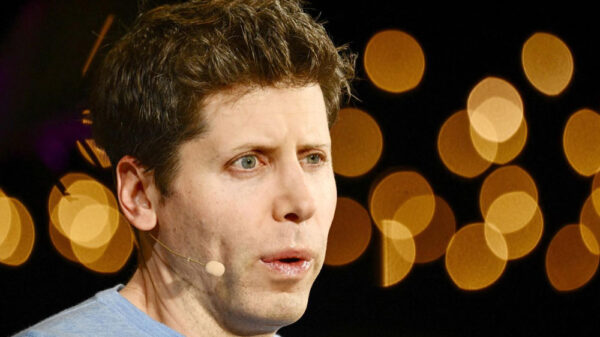In a historic diplomatic move, U.S. President Donald Trump met with Syrian President Ahmed al-Sharaa in Riyadh, Saudi Arabia, on Wednesday, just a day after announcing the lifting of U.S. sanctions on Syria. This marks a significant shift in American foreign policy toward the war-torn nation, which has long been designated a state sponsor of terrorism by the U.S. government.
The meeting, held under the auspices of Saudi Crown Prince Mohammed bin Salman, also saw Turkish President Recep Tayyip Erdogan joining the discussions via phone. The gathering was part of Trump’s broader Middle Eastern tour, which includes a stop in Qatar later this week.
A New Chapter for Syria?
President Trump’s decision to lift sanctions on Syria has sparked both praise and criticism. Speaking at the U.S.-Saudi Investment Forum in Riyadh on Tuesday, Trump declared, “I will be ordering the cessation of sanctions against Syria in order to give them a chance at greatness.” He emphasized that Syria’s new leadership, under Ahmed al-Sharaa, has an opportunity to stabilize the country and bring peace after years of devastation.
Syria has endured decades of turmoil, including civil war, sectarian violence, and brutal terrorist attacks. U.S. sanctions, first imposed in 2004 and expanded in 2011, compounded the hardships. The sanctions were a response to the regime of former Syrian President Bashar al-Assad, whose violent crackdown on anti-government uprisings plunged the country into chaos.
However, the Assad regime’s shocking collapse last December, following an offensive by anti-Assad militia groups, has paved the way for a transitional government led by al-Sharaa. A self-proclaimed reformed former al-Qaeda member, al-Sharaa now faces the monumental task of rebuilding Syria.
Key Topics of Discussion
During the meeting, President Trump urged al-Sharaa to take bold steps toward peace and stability. According to a White House readout, Trump encouraged the Syrian leader to:
- Sign onto the Abraham Accords with Israel.
- Expel all foreign terrorists from Syria.
- Deport Palestinian terrorists.
- Assist the U.S. in preventing the resurgence of the Islamic State (ISIS).
- Take responsibility for managing ISIS detention centers in northeast Syria.
Trump also expressed gratitude to Crown Prince Mohammed bin Salman and President Erdogan for their role in facilitating the dialogue. “President Trump thanked President Erdogan and the Crown Prince for their friendship, and told President al-Sharaa that he has a tremendous opportunity to do something historic in his country,” the White House statement noted.
Regional and Global Implications
Saudi Arabia and Turkey played a crucial role in influencing Trump’s decision to lift sanctions on Syria. In recent years, a growing number of Arab and Muslim nations have pushed for Syria’s reintegration into the Arab world, even before Assad’s ouster. Wednesday’s meeting signals a potential turning point in Syria’s relations with the international community.
For Trump, the move aligns with his administration’s broader strategy of fostering economic and political partnerships in the Middle East. The president’s remarks in Riyadh reflected optimism about Syria’s future under its new leadership. “In Syria, which has seen so much misery and death, there is a new government that will hopefully succeed in stabilizing the country and keeping peace. That’s what we want to see,” he said to applause.
Challenges Ahead
Despite the optimism, significant challenges remain. Al-Sharaa’s background as a former al-Qaeda member raises concerns among some observers about his ability to lead Syria toward a peaceful and inclusive future. Additionally, rebuilding the country’s shattered infrastructure and addressing deep-seated sectarian divisions will require sustained international support.
Critics of Trump’s decision to lift sanctions argue that it risks legitimizing a government with a controversial leader and could set a dangerous precedent. However, supporters believe the move is a pragmatic step toward ending Syria’s isolation and fostering regional stability.











